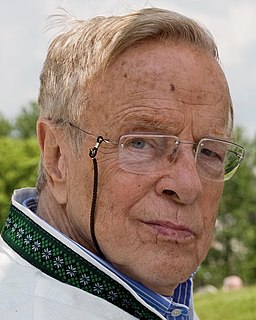A Quote by Angela Merkel
Look at the history of the printing press, when this was invented what sort of consequences this had. Or industrialization, what sort of consequences that had. Very often, it led to enormous transformational processes within individual societies. And it took awhile until societies learned how to find the right kind of policies to contain this and manage and steer this.
Related Quotes
In a cross-cultural study of 173 societies (by Herbert Barry and L. M. Paxson of the University of Pittsburgh) 76 societies typically had mother and infant sharing a bed; in 42 societies they shared a room but not a bed; and in the remaining 55 societies they shared a room with a bed unspecified. There were no societies in which infants routinely slept in a separate room.
I'm reading the Gospels at the moment and I can find no evidence of the kind of Christ people seem to have invented and created. There is no evidence of Christ, meek and mild. I can find Christ the compassionate, the gentle, but I also find a very temperamental, aggressive, passionate and often angry man a lot of the time. We will go for a man with that sort of breadth who is an enormous figure. I do believe Christ lived as a person. I don't think there is any disputing that.
The thing about frontiers, it allows the individuals who are best, whether they're men or women or minorities or whatever, to step to the top. So in traditional societies, old world societies, in the United Kingdom if you would; if you were born into the right stratus, the right class, you had the ability to succeed.
Look how in societies today where Islam is dominant and prominent, how any non-Islamic person, whether it's a Christian or an apostate or a woman or a critical journalist, how they are treated. This is in a very bad way, often with the death penalty or imprisonment or all those kind of terrible things.
There are two consequences in history; an immediate one, which is instantly recognized, and one in the distance, which is not at first perceived. These consequences often contradict each other; ... look to the end of an accomplished fact, and you will see that it has always produced the contrary of what was expected from it.
We see that there are two different kinds of...societies: (a) parasitic societies and (b) producing societies. The former are those which live from hunting, fishing, or merely gleaning. By their economic activities they do not increase, but rather decrease, the amount of wealth in the world. The second kind of societies, producing societies, live by agricultural and pastoral activities. By these activities they seek to increase the amount of wealth in the world.
The term blowback, which officials of the Central Intelligent Agency first invented for their own internal use, . . . refers to the unintended consequences of policies that were kept secret from the American people. What the daily press reports as the malign act of terrorists or drug lords or rogue states or illegal arms merchants often turn out to be blowback from earlier American operations.
And if you're gonna be a writer, you just truly have to be a writer. You have to throw yourself into it and deal with the negative consequences of that. And there are negative consequences. I mean, there are. But, it's also true that you wouldn't be interviewing me right now if I had worked at the post office. You wouldn't. I would be still writing, but I wouldn't have gotten as far as I've gotten, because I wouldn't have had the time.










































